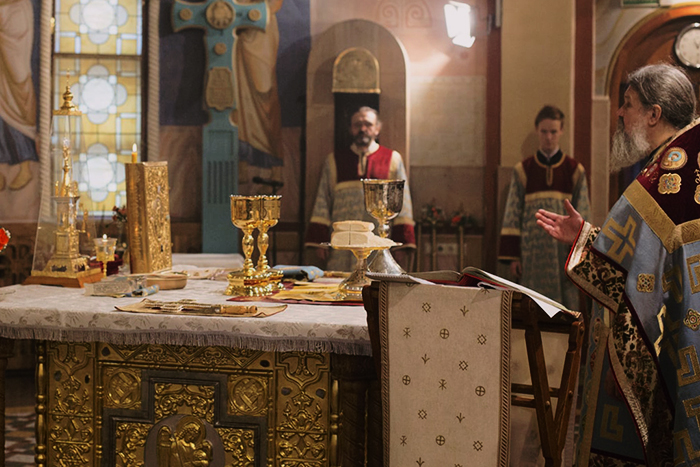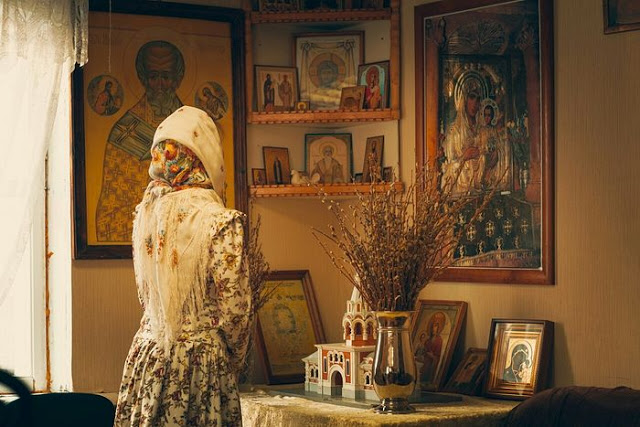
We can often find that in the everyday liturgical practice of a parish, the litany for the catechumens, and thus the prayer for the catechumens, is omitted. Is such a practice permissible? What are the arguments in favor of letting petitions and prayers for catechumens stay in their rightful place?
The Ancient Norm
The main argument of those who support the elimination of this litany is the undeniable fact that those for whom the Church prays in these petitions are no longer at our services. In ancient times, when there was an institute of catechumens and their number was sometimes as high as the number of baptized Christians themselves, the litany took an important place in the first, didactic part of the Liturgy. The church community probably knew the names of the catechumens, was aware of their desire to join the flock of Christ, and therefore sincerely prayed for their joining the Church. The situation, however, has changed dramatically in modern times.
The Absence of Catechumens at the Liturgy
The institution of catechumens was phased out after the population of the Roman Empire adopted Christianity and more and more people were baptized as infants. There are no more catechumens but there still are prayers and petitions for them, which led to a certain anachronism and even nominalism at the Liturgy. This is what the famous liturgist Archimandrite Cyprian (Kern) wrote, “It is not known who the church community prays for when the deacon exclaims, ‘O ye catechumens, pray to the Lord… may the Lord have mercy on them, enlighten them with the word of truth, reveal the gospel of truth to them’, etc. There are no catechumens, so the prayer and the litany are recited for those whom the Church does not have among its members, and, in general, does not even intend to make catechumens, enlighten and baptize” (Archimandrite Cyprian (Kern), The Eucharist).
The Greek churches have abolished these petitions long ago and often start singing the Cherubic Hymn immediately after the Litany of Fervent Supplication. Ahead of the 1917 Local Council of the Russian Church, many ruling bishops also advocated the abolition of the litany in their papers but the Council was unable to reach any decision due to well-known historical events.
Pastoral Nature of the Litany for the Catechumens
As you listen to the petitions of the litany we are discussing, and also know its substance, you begin to realize its universal and all-encompassing meaning. Even if there are no catechumens in the church now, it does not mean that there are no catechumens at all. It is always possible and necessary to pray for all people who have not been baptized yet, who have gone astray, as well as for those who are simply looking for the Truth. Someone may have found Jesus but has not yet found His Church. These petitions are a good reason to pray for them, for our missionaries, and for all those who look for God. These petitions keep us mindful of the joyful fact of our baptism, evoke gratitude to God that He accepted us and still accepts us, who always drop out of His grace and neglect the promises of our baptism.
Liturgy of the Catechumens
So why is it still advisable to keep the litany and the associated prayer for the catechumens in the Divine Liturgy? The truth is that the danger of the Church modernism may lie in an attempt to adjust everything to the current needs of the contemporary man, to whom some ancient elements may seem redundant and outdated. However, is this the case with the litany of the catechumens? Apparently not, because it is not for no reason that the first part of the Liturgy is still called the Liturgy of the Catechumens, and not the Liturgy of the Word, as is customary in the Western tradition. By taking out the litany and the prayer for the catechumens, won’t we dismiss something very important in the conscience of the Church?
The Liturgy of the Faithful is the Result of the Mission
The division of the Eucharistic divine service into the Liturgy of the Catechumens and the Liturgy of the Faithful is a visible testimony of the fact that the Church is called to preach Christ and then to unite people with Christ in the Sacrament. Protopresbyter Alexander Shmemann, despite the fact that he was a disciple of Archimandrite Cyprian (Kern), considered the litany for the catechumens to be an integral part of the Divine Liturgy, “Prayers for the catechumens are primarily a liturgical expression of the most basic calling of the Church, namely the Church as a mission … Nowadays it is particularly important to preserve the structure of the divine worship in which the mission and the fruit of the mission are conjoined” (Archpriest Alexander Shmemann, The Sacrament of the Kingdom).
By preserving these parts of our Liturgy, we examine ourselves: what does my Church, my parish, and I do for the conversion of unbelievers? What do I do to help others to participate in the joy of receiving Christ at the Eucharistic Meal? If we profess to be faithful to Christ, we must humbly bear our testimony of faith and do our best to fulfill the Lord’s commandment addressed to all Christians: Preach the gospel to every creature (Mark 16:15).



